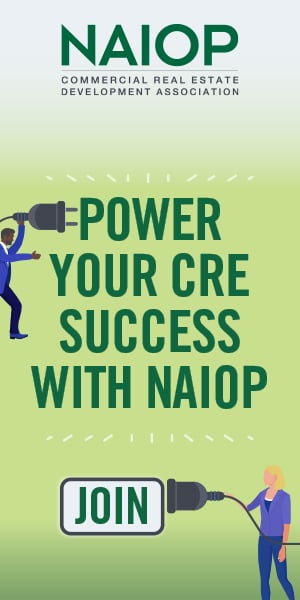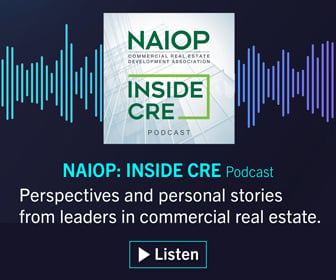From Broker to Developer: The Challenges (and Rewards) of a Major Career Transition

Commercial real estate leaders discuss how they climbed the ladder to the upper reaches of the profession.
First in a series.
Many successful commercial real estate developers began their careers as brokers, but what does it take to make that transiton?
According to several professionals who have moved from broker to developer, it’s not for everyone. It requires a combination of ambition, expertise, people skills and perhaps most importantly, patience. Development magazine asked these experts to share advice that might help those who want to follow a similar path in the commercial real estate industry.
Personality, Knowledge and Experience
First, it’s important to have personality traits that could be useful in many other industries. According to Jonathan Tratt, principal for Tratt Properties, LLC, a development and investment company based in Phoenix, these include “ambition, desire, drive, stick-to-itiveness, detail orientation, control orientation, vision and the ability to hold people accountable.”
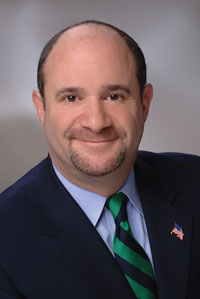
Tratt
Next, it’s vital to learn as much as possible about all aspects of commercial real estate, but without being too focused on any one area.
“I have a friend who calls himself a ‘general specialist,’ and that phrase provides a good framework for thinking about the skills required for a development career,” said Lewis Agnew, president of Charles Hawkins Co., in Nashville. “You need to know a little about a lot, without being an expert in any one area.”
Agnew said deep practical knowledge of finance, construction and human nature shapes the day-to-day, roll-up-the-sleeves work of commercial real estate.
When it comes to finance, Agnew said a basic understanding of investments, financial modeling and capital markets is crucial. It’s also important to understand the physical asset — whether it’s raw land or a finished building. Next there’s the construction process and everything that goes into it: design, permitting, grading, construction and maintenance once a project is completed. Finally, there is the human element of deals — salesmanship, marketing, and the complex web of relationships with tenants, landlords, politicians and the public.
“After all, developments fail if there are no tenants or buyers paying you back,” Agnew said.
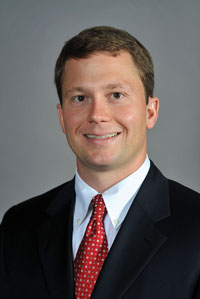
Agnew
University-level degree programs in real estate or courses offered by trade associations such as NAIOP can provide essential education and credentials. However, those interviewed for this article made it clear that there is no substitute for years of real-world experience in commercial real estate.
“I would much prefer a streetwise and experienced broker with a specific commercial specialty, rather than an overeducated and underexperienced MBA or Ph.D. in any field of training,” Tratt said. “It’s similar to how it is important to earn ‘shoe leather’ credentials in the beginning of a brokerage career by cold-calling prospects and experiencing rejection, obstacles, or being put off or ignored. Ideally, you should work for a development company and/or apprentice to gain exposure, experience and hands-on knowledge.”
Agnew noted that it’s possible to become a prosperous developer without graduating from college.
“The funny thing about development is that you can be wildly successful without any formal training,” he said.
Examples include Harry Macklowe, founder of Macklowe Properties in New York City, who bounced around three colleges before dropping out to become a broker, and R. Donahue Peebles, founder of the Peebles Corporation, who dropped out of Rutgers as a freshman to become a real estate appraiser and sales agent. Today, he’s one of the wealthiest African-American developers in the country.
“To develop these skills, you can read a lot, you can go back to school, or you can learn by trial and error,” Agnew said. “If you go for the trial-and-error method, make sure you ask lots of questions, and find or hire good advisors and partners.”
That said, Agnew also believes that the best way to improve the odds of success in the industry is through formal education. In his case, he studied civil engineering as an undergraduate and practiced it for a few years before moving into real estate. And while that course of study was important for developing his understanding of buildings and construction, it didn’t give him any experience with finance or brokerage.
Agnew went back to college to pursue an MBA with a real estate concentration so he could understand those aspects of the industry. As a student, he interned with a local real estate developer and realized that he had found the right career path. But he still lacked that hands-on industry experience.
His first job after graduation? Working as a broker and cold-calling warehouses 45 minutes outside of Nashville.
“Starting a career in brokerage or property management can be a great foundation for entering the development profession,” he said.
Greg Fuller, president and COO of Granite Properties in Dallas (NAIOP’s 2022 Developer of the Year), said working as a broker early in his career piqued his interest in becoming a developer.
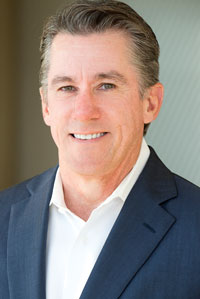
Fuller
“Development is very experiential, and that takes time,” he said. “A broker must have the desire to be more involved than just facilitating a transaction. For me, it was an interest in build-to-suits for my clients when existing properties were not available to meet their needs. After working on 10 or so as a broker, my desire to be involved in development and ownership grew.”
Rewards Beyond the Paycheck
According to Salary.com, the annual base pay for U.S. commercial real estate brokers in 2022 ranges from $55,171 to $81,573, though commissions and bonuses can push those numbers much higher. Developers, on the other hand, have the potential to make significantly more than that in annual compensation. However, it
can take years to reach that level.
“Brokers, especially good ones, might make a lot less money — for a long time — if they make this transition,” Agnew said. “There is also the possibility of losing money — which is not the same as ‘only’ making less money.”
Agnew said it’s essential for those looking to make this transition to have a clear understanding of their risk tolerance and personality traits.
“Good developers understand risk and risk management, and the ones who survive multiple cycles learn how to spend less than they make,” he said.
For those who successfully move from broker to developer, the rewards can
be satisfying on many levels — as well as beneficial to local communities.
“After successfully completing my first building in 2000, I was very pleased with the financial outcome, and I thoroughly enjoyed the multi-faceted job and creative process of literally making something from nothing,” Tratt said. “The development business is challenging, rewarding and creative. It is a business that
can create wealth, increase economic activity and boost employment. I am very fortunate to have made the transition some 20 years ago, and I encourage others to do the same.”
Trey Barrineau is managing editor of publications for NAIOP.
The Pros and ConsIn May 2020, Rob Chandler and Jeff Barbles of Lone Star Partners in Vail, Colorado, took part in a discussion on YouTube with Matt Cors of Crexi, a commercial real estate property marketing and deal management platform, about what it takes to go from broker to developer. In the video, they shared some of the advantages and disadvantages of making the transition: ADVANTAGES
DISADVANTAGES
To view the discussion, visit www.youtube.com/watch?v=WiiFC0gH3hI |


